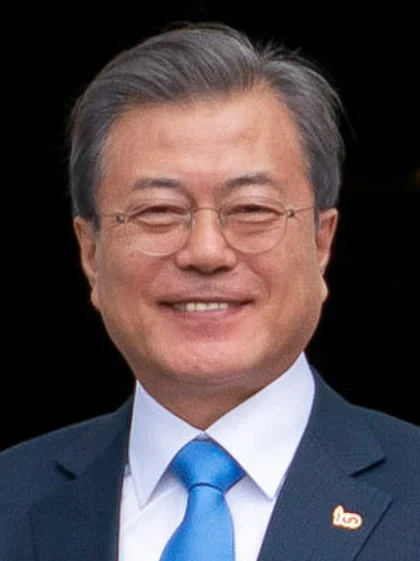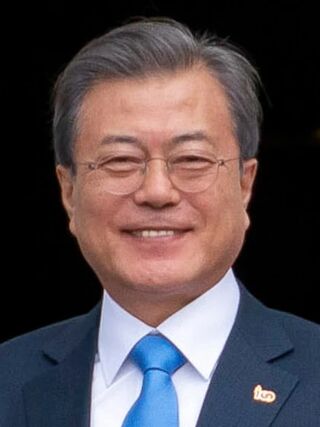communist program quoting the New Deal
2021-08-15
Category:South Korea I'm participating in the ranking.Please click and cheer for me.
congratulatory address for Moon Jae In 2021 Independence Day
The Korean version of the New Deal, which will invest 220 trillion won by 2025, is a roadmap for becoming an innovative and inclusive country centered on people and a development strategy for a country that will take a new leap forward. The government has made the Human New Deal another pillar of the Korean version of the New Deal, along with the Digital New Deal and Green New Deal. We will establish a social safety net, such as the abolition of employment insurance and living allowance support standards for all citizens, and lead the transition to digital and green through investment in people.
-------------------
The New Deal is interpreted as a bold intervention by the U.S. government in the market economy during the Great Depression and as a intervention to free competition to rebuild the Great Depression.And what's the Human New Deal?I mean, you're going to intervene there, too.
In his congratulatory speech last year, he said, "The Korean version of the New Deal is a new social contract for co-prosperity, a promise to strengthen employment and social safety nets, increase investment in people, and achieve prosperity and co-prosperity."What is a nation centered on people? Have Korea always been centered on dogs or cats?What's the investment in people? Wasting money is not the investment, is it?
What Moon Jae In is doing is simply government intervention to move toward communism.
I'm participating in the ranking.Please click and cheer for me.
The number of malfunctions of the South Korean Air Force's F-35A fighter jets is 234, and 172 are unflyable - Expensive fighter jets are also useless. From last year, when the South Korean Air Force's most advanced fighter jet, the F-35A, began regular operations, to the first half of this year, it was judged to be in a condition not capable of flight (G-NORS) or not capable of carrying out specific missions (F-NORS) a total of 234 times. It was reported that this was found out. The breakdown is 172 G-NORS and 62 F-NORS.
F-35As affected by G-NORS were unable to perform missions for an average of 12 days last year and 11 days in the first half of this year. F-35As affected by F-NORS were restricted from performing missions for an average of 129 days last year and an average of 24 days in the first half of this year. The reason for the failure is that some problems occurred in procurement of repair accessories, and the manufacturer did not promptly procure repair accessories. In other words, the company is being investigated for being skimpy in procuring repair accessories.
The F-35A is a fifth-generation stealth fighter with a maximum speed of Mach 1.6 and a combat radius of 1,93 km, making it one of North Korea's most feared weapons, but is it practical if it has so many breakdowns? There are question marks attached to this situation.
The biggest problem is that Korea does not have the know-how to repair the F-35.The only base in Asia that can repair the F-35 is the Mitsubishi Heavy Industries factory in Aichi Prefecture, Japan. Mitsubishi Heavy Industries is a company designated as a war criminal by South Korea. I wonder if it would be difficult to repair it in Japan within Korea, or maybe I would have to take it to America.
Or will they secretly bring it to Japan? Speaking of which, Japan is currently developing the F-3 fighter jet, which is also being developed by Mitsubishi Heavy Industries. It would be impossible to purchase fighter jets from a war criminal company.
Japan will significantly increase its defense budget and advance military research. Since we do not have an alliance with South Korea, we must refrain from selling weapons to South Korea.
Last One Mile Support In addition to Taiwan and Vietnam, Japan will provide vaccines through COVAX: Cambodia, Laos, East Timor, Bangladesh, Maldives, Nepal, Sri Lanka, Fiji, Kiribati, Papua New Guinea, Samoa, Solomon, Tonga, Vanuatu, Iran.
New target country of "Last One Mile Support" in cooperation with UNICEF: Ghana, Senegal, Mozambique, Malawi, Palestine, the Philippines and Mongolia."Last One Mile Support" will cover 59 countries and regions.
Korea is not a developing country, so it is likely that it will not be able to provide vaccines because now Korea is in the midst of the No Japan movement and Japan respected it and their passion.
What has clearly changed due to the Japan - Korea issue - It is the Japanese sentiment toward Korea and the perception of Korea - It is not easy to overturn this.
What kind of Japan-Korea relations will the new South Korean government build in the future? Since it is the administration after the Moon Jae-in administration, we must see a completely different point from other administrations. It is different from the Kim Dae Jung administration and the Park Geun-hye administration. The biggest difference is the Japanese national sentiment. Since the 1998 Japan-Korea Joint Declaration, the Japan-Korea World Cup has been held, and the Japanese have supported the success of this soccer tournament. What was introduced in Japan during this period was Korea with a good image. It is a Korean drama and K-POP. Of course, this is a creative and fictional world of entertainment, but many Korean fans were born in Japan, and this played a role of friendship between Japan and South Korea to a certain extent. However, what Moon Jae-in revealed was the exact opposite of South Korea, which is completely different from these. It is the earnest desire of the Korean people to pray for the destruction of Japan.
The setting of the target point to return to the 1998 Japan-Korea Joint Declaration set by President-elect Yoon Seok-you should be evaluated to a certain extent. With the joint declaration of Keizo Obuchi and Kim Dae Jung, Japan-South Korea relations should have taken a normal direction. Then why couldn't we walk that way? This is an issue. In other words, Japan moved forward in line with the declaration, but South Korea retreated. Why is this? We have to think about this problem right now. If this is misunderstood, future negotiations between Japan and South Korea will not proceed well. On the contrary, not only the Korean government but also the Kishida administration will be blown away in an instant. China will be staring at it.
History must probably repeat itself if the core issues disappear as a result of the long-lasting stress of the change of government from the left-wing South Korean government. It should be back in 1965, or maybe 100 years ago. At least in 1965, Japan and South Korea solved the problem comprehensively in the efforts of both countries. Japan and South Korea have reached an agreement for the future in Asia, which is suffering from postwar reconstruction that is incomparably difficult due to the current friction between Japan and South Korea.
South Korean President with 28% Approval Rating - Breaks Promises to China if Seeking Relations with Japan - Country that Breaks Promises to Japan if China [Contents]
South Korea's new president with low approval rating
It's advantageous if you don't make achievements
Anti-Japanese Appeal on the Takeshima Issue
China just waits and sees
Change of government will change things
President Yoon Seok-yeol's approval rating is 28% (according to Gallup Korea survey), and he has been facing a tough fight since he took office. Since the administration began as a lame duck in the first place, there is no change in the situation where the government cannot move unless the power of the people wins the 2024 general election.
Looking ahead to 2024, the Democratic Party of Korea, which is the enemy, will be at a disadvantage if President Yoon produces results and achievements. There is no mistake in going on the offensive of not letting the president do anything.
Although President Yoon Seok-yue has appealed for the improvement of Japan-South Korea relations, he is willing to make concessions on the Takeshima issue, such as by conducting marine surveys around Takeshima. Even at this stage, he is ridiculed as a pro-Japanese president or a betrayal president. In any case, from a Japanese point of view, it can only be seen as a double standard.
As for China, as was the case with Moon Jae-in, it seems that they are just watching the future of this administration.
The deployment of THAAD under the Park Geun-hye administration cooled relations between China and South Korea, but under the Moon Jae-in administration, they exchanged promises with China about the three non-compliances, and the current president has declared that he does not know about the three non-compliances.
Right-wing and left-wing South Korea have a unique structure of pro-U.S./pro-Japan and pro-China conflicts, and they seem to understand well that a change in government can lead to a major change in diplomatic policy.
In the first place, isn't there a question in South Korea about where the national ideology of South Korea, which goes back and forth between liberal democracy and socialist dictatorship, lies? On the contrary, they are constantly intimidatingly questioning each other about meaningless alternatives, whether they are pro-Japanese or anti-Japanese.
South Korea, where anti-Japan precedes the national ideology of democracy or socialism. Any problem can be dwarfed by anti-Japan fire, making it a very easy tool to use politically.
the next presidential candidate Yoon Seok-yeol: The relationship between Korea and Japan has deteriorated to the worst level since the normalization of diplomatic relations.Diplomacy should be based on pragmatism and realism, but it has come to this point because of its ideological bias of "bamboo spear songs."The Moon administration is trying to sort things out at the end of the administration, but it seems to have failed.
Li Nak-yeon: I can't believe his recognition when I hear he said about bamboo spears.It was shocking that he made such absurd remark that is shallow historical understanding at Yoon Bong-gil Memorial Hall .
Lee Jae-myung: Japan, an aggressor, should have been divided, but Korea, a victim of Japan's invasion, was divided.
The next presidential election will also be a match between Japan and South Korea.For Japan, Yoon Seok-yeol is better for Japan to pursue diplomacy, but I personally think if the other two would be President Japan should recognize as a hostile country beyond anti-Japanese and historical issues.
In the first place, Japan has nothing to do with the Korean presidential election.Korea should Focus on internal affairs.Either way, Japan will only respond accordingly.Because it's a foreign country.

![[전문]문재인 대통령의 제76회 광복절 경축사](http://image.newsis.com/new_www/homepage/newsis_big_logo.jpg)

